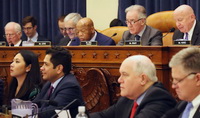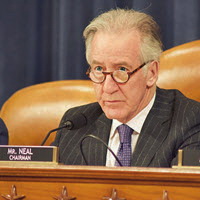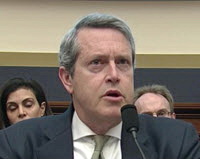The Financial Accounting Standards Board (FASB) on Wednesday passed a proposal that would give more time to smaller lending institutions to adopt the Current Expected Credit Losses (CECL) accounting standard, which forces lenders to book losses on bad loans much faster. ( ABA Banking Journal , July 17)
 |
|
FASB Chairman Russell Golden stated, “Additional time would give the stakeholders more ability to learn from larger lenders, more ability to have resource providers available, and more ability to look at best practices for disclosures and controls.” |
- The delay would set January 2023 as the new deadline for small public lenders, private lenders and nonprofits (such as credit unions) to implement CECL. (Credit Union National Association, July 17)
- CECL would still take effect for publicly traded U.S. banks beginning in January 2020. The regulatory change in how banks estimate losses in their allowance for loan and lease losses (ALLL) will require substantial changes in data analytics and financial methodologies.
- FASB Chairman Russell Golden stated, “Additional time would give the stakeholders more ability to learn from larger lenders, more ability to have resource providers available, and more ability to look at best practices for disclosures and controls.” (Wall Street Journal, July 17)
- FASB is expected to release the proposed accounting standard changes in August, subject to a 30-day comment period.
- For real estate, there is concern that banks may reduce lending volumes as they build up additional capital reserves to be in compliance with CECL. A business coalition that included The Real Estate Roundtable wrote to the U.S. Securities and Exchange Commission (SEC) and FASB in March, urging further study amid concerns that CECL may soon begin to reduce aggregate bank lending. (Coalition Letter, March 5 and Roundtable Weekly, March 8)
- Congressional legislation to delay CECL’s implementation was introduced in the Senate on May 21 by Sen. Thom Tillis (R-N.C.) and in the House on June 10, led by Rep. Vicente Gonzalez (D-TX). (S&P Global Intelligence, June 11)
- This week, FASB posted a Q&A document addressing various CECL implementation issues, including how to make a “reasonable and supportable” forecast of expected loan losses. FASB also plans a series of CECL educational workshops throughout the country. (FASB Advisory, July 17)
- The CECL accounting rule change was issued in June 2016 by FASB as a result of the 2008 financial crisis. (FASB, Credit Losses)
The Roundtable’s Real Estate Capital Policy Advisory Committee (RECPAC) will continue to address the potential impact of the new accounting standard and work with the CECL business coalition on implementation issues.













